By staff reporter ZHANG HUI
By staff reporter ZHANG HUI
China’s CPC National Congress, held every five years, is now no longer a purely domestic gathering but a major global event that magnetizes global attention. “The congress will introduce new strategies that decide not only the future of China but also affect the world as a whole,” Muhammad Faruk Khan, presidium member of Bangladesh Awami League Central Working Committee and chairman of the Parliamentary Standing Committee on Civil Aviation and Tourism, said at a thematic briefing on green development organized in late September by the International Department of the CPC Central Committee shortly before the convening of the 19th CPC National Congress. “I’m sure that the entire world, including Bangladesh, anticipates the Congress with immense interest,” Muhammad Faruk Khan further commented.
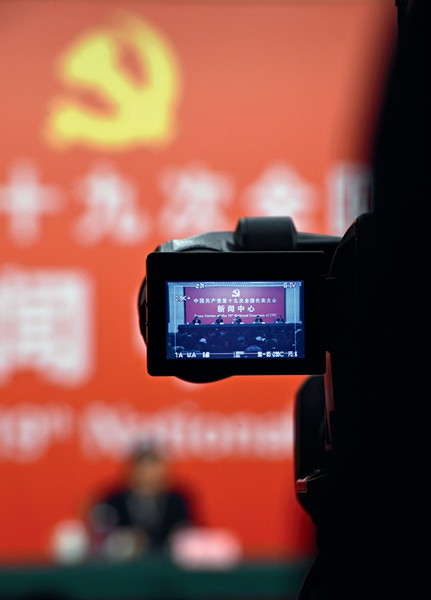
Foreign media attention focuses on the 19th National Congress of the Communist Party of China. Cnsphoto
Over the past five years, the CPC Central Committee, with General Secretary Xi Jinping at the core, has proposed a range of new ideas, thoughts, and strategies on governance that have evoked responses throughout the world. “From a Western perspective, we hear many positive comments on the role of the Communist Party of China. I believe that the Party’s successful leadership over the past five years has had positive impact on China’s development,” International Secretary at Labor Party of Malta Marc Vella Bonnici told China Today. And Kamal Ismail Saeed, State Minister for Foreign Affairs of the Republic of Sudan, said in an interview with China Today, “We’ve been most impressed by the new ideas that the Party and its leaders have introduced, particularly the concept of socialism with Chinese characteristics. This is a very clear, wide-ranging, highly sensitive concept that encompasses a green economy and a green policy which benefits China and the world as a whole.”
The 19th CPC National Congress is crucial to the country as it embarks on the decisive final stage of building a moderately prosperous society in all respects, and enters a vital period in the development of socialism with Chinese characteristics. The congress concerns the fundamental interests of Chinese people, and also exerts profound influence on the future of the entire world in this era of globalization. What, then, are the main focal points of the international community regarding the congress? What significance does China’s experience in running the country hold for the world as a whole? To gain insight into these questions, China Today interviewed two ambassadors to China, as well as various visiting foreign officials, party leaders, and organizational heads during the thematic briefing on green development organized by the International Department of the CPC Central Committee.
International Focal Points
“I’ll keep a particularly close eye on the policies that the CPC and the Chinese government introduce at the congress, especially those on green development. After the remarkable rise of its economy, China must now tackle the serious problem of environmental protection during this period of economic transformation. This is vital for China’s current development, and will also affect the coming generations. That’s why I’ll pay special attention to the policies and measures that the National Congress introduces on furthering green development and environmental protection,” Chairman of the Friendship Group Bulgaria-China under the National Assembly of the Republic of Bulgaria Dimitar Boychev Petrov told China Today. Petrov added that he would pay particular attention to CPC policies on strengthening international cooperation. “For example, how to promote China-Bulgaria relations, including enhancing people-to-people exchanges,” Petrov said.
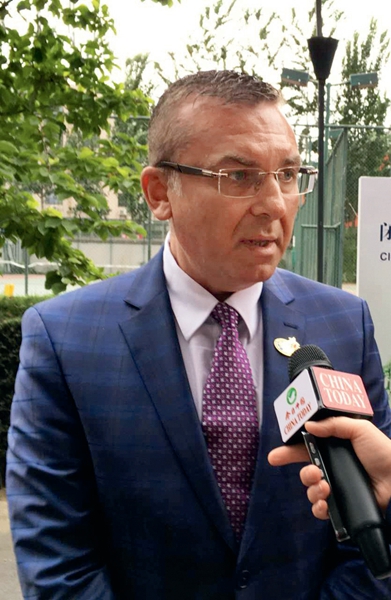
Ambassador of Greece to China Leonidas C. Rokanas spoke about his specific expectations of the congress in an interview with China Today. “We have observed via the 2016-2020 five-year plan that the main direction and basic component of China’s development is innovation. Sustainability, openness, inclusiveness, and coordination are also emphasized. So what will happen about all these concepts after the congress? Will they continue to be pursued? And if so how? Of course, the expectation is that the congress will reveal a new dynamic in this respect.
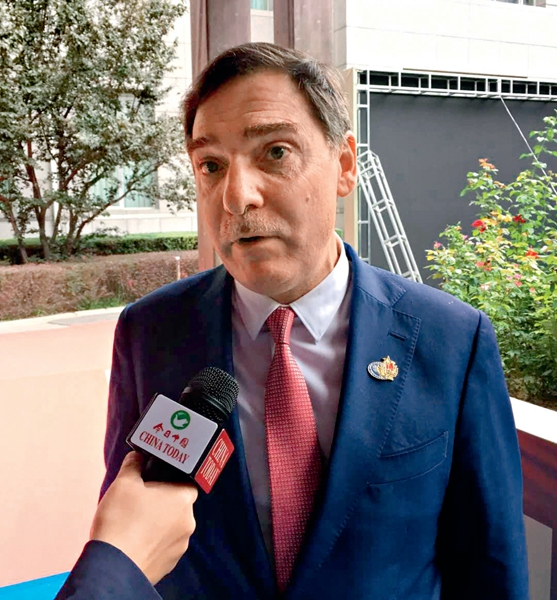
“The second thing I would like to say is that the congress is important to the Party itself. It is clear that Party discipline must be coordinated with the Party’s direction in order to guide the country in a comprehensive and meaningful way. Discipline is vital to combating corruption, and the CPC has a major role in that task. Corruption is both socially and economically destructive, and rule of law is an essential concept. We’re waiting to see how all this plays out at the congress,” Rokanas said.
The ambassador also expressed his ecological concerns. “The ecology, including ecological protection and ecological transformation, is prominent in the constitution of the Party. This is both important and interesting, because it bears strong similarity to the ecological approaches of my country and of the European Union. Environmental protection and promotion of ecological awareness are embedded in our laws, so it will be very interesting to see how these concepts are addressed at the 19th CPC National Congress.”
Rokanas added, “Of course, the economy is also a main interest. But the economy is not an end in itself, because it is inextricable from social justice and development. Our interest will also focus on topics like innovation, large state-owned companies, and growth – what is expected to happen with growth.”
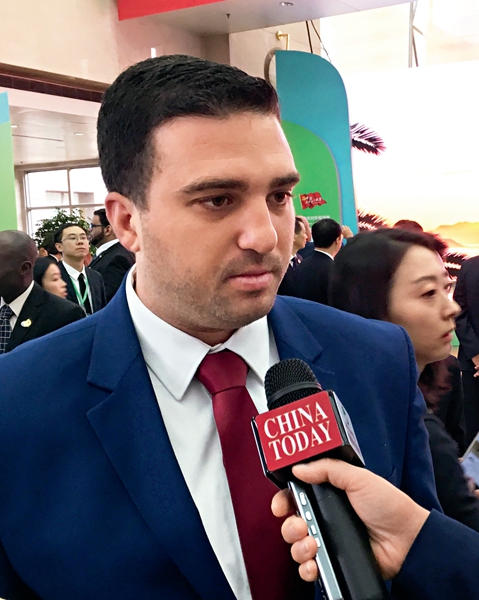
Marc Vella Bonnici, International Secretary at Labor Party of Malta, in an interview with China Today, expressed interest in the upcoming CPC economic policies. “We keenly await the congress, and look forward to seeing how China intends to continue developing its economy. The country’s GDP growth was 6.9 percent in the first quarter of 2017 – a figure that is easy for China to maintain. So we’re interested to see what the government’s new target will be.”
Kamal Ismail Saeed, State Minister for Foreign Affairs of the Republic of Sudan, said, “We’re following closely the actions of the 19th CPC National Congress. We look forward to the congress to see what decisions will be taken as to the future of China and the world as a whole. Our hope is that it will bring positive decisions in the field of reform and of international relations. We, as a developing country, anticipate more positive international relations.”
Bringing the Experience Home
“I think lifting people out of poverty is the most important thing that the Communist Party of China has done for China and the rest of the world,” Presidium Member of Bangladesh Awami League Central Working Committee Muhammad Faruk Khan told China Today. “We know that 50 years ago, many countries including China were very poor. But over the past decades, 700 million people here have risen from poverty. That’s exactly what the world should learn from China, to see how it can be done. And I’m sure China has shown the way in this respect,” Khan said.
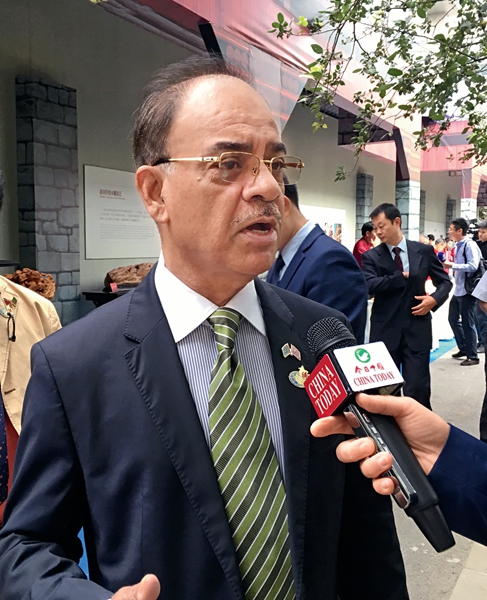
Ambassador of Rwanda to China Charles Kayonga told China Today, “Consistency and focusing on serving the people is a great lesson we can learn from the Communist Party of China. It’s the original focus of liberation, which means not just defeating your enemies and taking control of your country, but also liberating people from the shackles of poverty and other limitations on development. So the Communist Party of China has demonstrated the consistency of that focus. This is the big lesson we have learned, and it’s also what we’re trying to do in Rwanda.”
“The fact that the CPC operates a consultation system, whereby the Party consults with other parties, even if they have different ideologies, before taking certain decisions, is highly commendable. It means that the final decision is taken in the best interest of Chinese people,” Marc Vella Bonnici told China Today.
Viorel Neaga, director of a business incubator in Northern Moldova, praised China’s economic development and the CPC’s practice of combining practice with theory building. “First of all, China sets an example to the world of a growing economy. China is also an example of structural development, in the sense that it is not just about practice. China has corresponding theories and policies and knows how to implement them, step-by-step. Every leader of a party in the world wants to do all he can as quickly as possible during his tenure, to show his nation and population that he is the best in every way. But many inevitably make mistakes, because in your haste to grow fast you might overlook something. In my opinion, this is not the case with China or with the CPC, because they’ve done a brilliant job. They combine good theory and practice in governing the country,” Neaga said.
Ambassador of Greece to China Leonidas C. Rokanas commended China’s successful practices in green development. “You know, green development doesn’t happen by itself, but deterioration does if you just leave things out there without supervision. That’s why you need to be vigilant.” Rokanas believes the CPC is indeed on the alert in this area. “So China can and will, I think, if it continues along the same path, and I hope it does, play a decisive, global role in this regard. It could be a world leader in this respect,” he concluded.
The ambassador also applauded China’s efforts towards curbing air pollution and protecting biodiversity. “I believe what has been done could be emulated, and also used as a sort of grounds for international cooperation,” Rokanas said. He went on to express admiration for China’s progress in taming desertification. “The Kubuqi Desert in Inner Mongolia is just one example. It’s impressive how China has tackled the problem of desertification. This is a major issue of environmental protection that affects the economies of many countries. China has formulated an original, innovative way of making desert green once more. By regenerating topsoil lost due to agricultural practices through special approaches, Chinese specialists combine desertification control with economic development. I think this example of China’s is one that we should follow,” Rokanas said.
Chairman of the Friendship Group Bulgaria-China under the National Assembly of the Republic of Bulgaria Dimitar Petrov praised China’s practice of rating cities in specific fields. “During our visit to Fuzhou, we learned that the city had been awarded national sanitary city in 2015. I think this system of nationwide city rating is fantastic. It encourages every city to take the measures necessary to reach a certain standard. We saw one such well-managed city in Fuzhou, very clean and pretty. So we’re considering introducing the city rating method in my country.”
Strong Leadership
Many of the people interviewed expressed admiration for the CPC Central Committee with General Secretary Xi Jinping at the core, and for Xi’s sagacity and ability. They generally attributed China’s great development to its strong leadership.
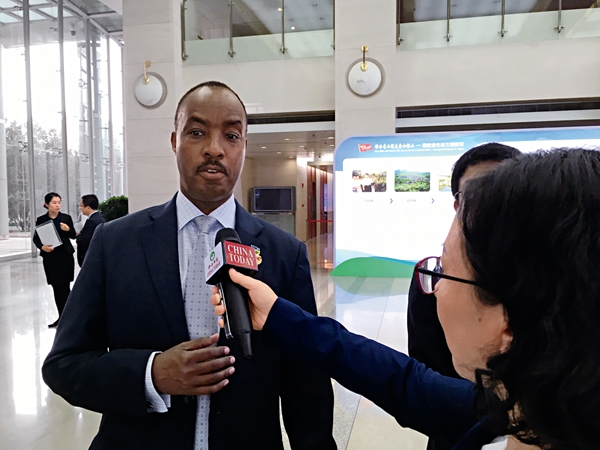
“The leadership of the Communist Party of China is clearly excellent, because in recent times much has happened in China, especially since General Secretary Xi Jinping took office, and further opened up and reformed the economy. Such progress is unprecedented as far as I can see. As more people rise from poverty, we’re also seeing many initiatives proposed in different areas of the international community on the economic, diplomatic, and political fronts. Relations between China and Africa have also been upgraded. China’s relations with my country, Rwanda, have expanded to greater dimensions than ever before to reach a higher stage in political and economic cooperation. So people in Rwanda and many other countries are most impressed and look up to the leadership of General Secretary Xi Jinping and the Communist Party of China,” Ambassador of Rwanda to China Charles Kayonga told China Today.
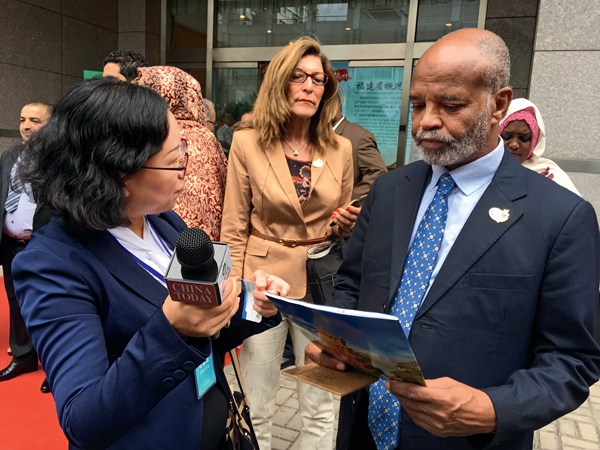
Kamal Ismail Saeed, Republic of Sudan.
Uncredited photos by Wang Kai
Kamal Ismail Saeed, State Minister for Foreign Affairs of the Republic of Sudan, said, “We have learned much about the leadership of the Party and General Secretary Xi Jinping, and know that he has accomplished much over the last five years. He was dynamic even before this. Xi has an excellent vision of the future of both China and the world, and is a wise leader. He has successfully led his nation and fixed problems in China and the world. We hope and wish that he will continue his wise policies internally and contribute to world peace and security.”
Viorel Neaga, director of a business incubator in Northern Moldova, told China Today, “I hope General Secretary Xi Jinping will be selected for a second term. This will make possible the implementation of plans and polices for the future that have already been put forward. The party is strong and the best for the country, so we wish them the very best, and good luck. We appreciate what they’ve already done, and believe that they’ll do more good things, for the people, and for all humankind.”